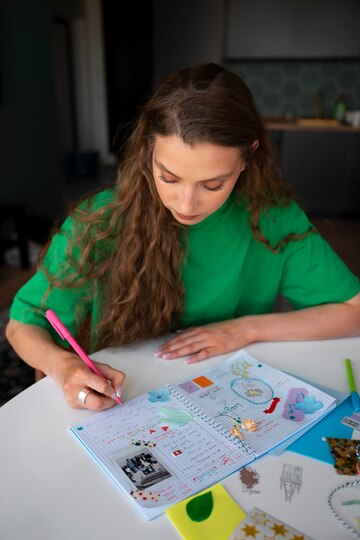Mental maths is an essential skill that helps children solve mathematical problems quickly and efficiently without using a calculator or pen and paper. For young learners, especially those in Class 1, mental maths can sometimes feel challenging. However, with the right approach and tools, like engaging worksheets, you can make learning mental maths not just effective but also fun. In this blog, we'll explore some practical tips and strategies to make mental maths enjoyable for first graders using worksheets.
1. Understanding the Importance of Mental Maths for Young Learners
Mental maths is more than just a skill; it’s a way of thinking. It helps children develop critical problem-solving abilities, improves memory, and enhances their cognitive functions. For Class 1 students, developing these skills early sets a solid foundation for future learning. Mental maths also boosts confidence as children learn to solve problems quickly, without hesitation.
When mental maths is incorporated into everyday learning, children begin to see maths as a fun and integral part of their lives. Using mental maths worksheets regularly can reinforce what they've learned in class, making it easier for them to grasp concepts. Engaging worksheets turn mundane drills into interactive and playful activities, making maths a favourite subject among young learners.
2. Incorporating Visuals into Worksheets to Capture Interest
Visuals are a powerful tool for learning, especially for young children who are still developing their reading and comprehension skills. Incorporating pictures, colourful graphics, and fun themes into mental maths worksheets makes them more engaging. For example, worksheets that feature animals, balloons, or superheroes not only attract the children’s attention but also make solving math problems more enjoyable.
Worksheets with visual aids can help children understand abstract concepts more concretely. For example, using images of apples to represent addition or subtraction problems allows children to visualize the maths problems, making them easier to understand. This visual connection helps in retaining information better, as children can recall the images when trying to solve similar problems mentally.
3. Gamifying Mental Maths Worksheets for Better Engagement
One of the best ways to make mental maths fun is by turning it into a game. Gamification is an effective educational strategy that involves using game-like elements in learning activities. By integrating elements such as points, rewards, and challenges, you can transform traditional mental maths worksheets into exciting activities that children are eager to complete.
For instance, you could create a worksheet where each correct answer earns a certain number of points, and accumulating a specific number of points unlocks a reward, like a sticker or extra playtime. Challenges can be time-based, where students are encouraged to solve as many problems as possible within a given time frame. This approach not only motivates students to engage with the material but also helps them develop quick thinking and response skills.
4. Progressively Challenging Worksheets for Continuous Improvement
It's essential to start with simple problems that build confidence and gradually introduce more challenging tasks as students become more comfortable with mental maths. Progressive difficulty ensures that students are always learning at their own pace and are not overwhelmed by the complexity of the problems.
Begin with basic addition and subtraction, ensuring the students are confident with these operations. Then, introduce slightly more complex problems, such as double-digit addition or simple multiplication, to keep them challenged. Worksheets can include problems that require children to identify patterns or solve puzzles, which can help in developing their critical thinking and analytical skills.
5. Incorporating Abacus Mental Math for Hands-On Learning
Abacus mental math is an ancient method that has proven effective in helping children develop quick calculation skills. Using abacus techniques in mental maths worksheets can be an excellent way to make learning fun and interactive. It provides a hands-on approach that young children find engaging and stimulating.
Worksheets designed around abacus techniques can include visual representations of the abacus, allowing children to move beads in their minds to perform calculations. This visual and tactile learning method enhances concentration, improves memory, and makes maths more approachable. Incorporating abacus mental math into daily worksheets helps children visualize mathematical operations, making it easier for them to perform mental calculations.
6. Making Learning Collaborative with Group Activities
Another effective way to make mental maths fun is by incorporating group activities into the learning process. Group activities and games create a sense of camaraderie and competition, which can be highly motivating for young learners. Worksheets can be designed to be completed in pairs or small groups, encouraging teamwork and collaboration.
For example, a worksheet could involve a relay race where each team member must solve a problem before passing the sheet to the next person. This not only makes learning more interactive but also helps children develop communication and social skills. Another idea is to have math quiz competitions based on the worksheets, with small rewards for the winning teams. These activities turn learning into a social experience, making it more enjoyable and less of a solitary task.
Conclusion:
At UCMAS USA, we believe that every child can develop strong mental maths skills with the right approach. By using engaging and creative mental maths worksheets, we make learning maths fun and effective for Class 1 students. Our innovative methods, including the use of abacus mental math, are designed to help children think critically, solve problems quickly, and enjoy the process of learning.
UCMAS USA offers a range of programs that are tailored to enhance mental math abilities in young learners. Our experienced educators use a combination of traditional teaching techniques and modern technology to provide a comprehensive learning experience. If you want to give your child a head start in maths, explore our programs today and see the difference we can make.
Visit UCMAS USA to learn more about our mental maths programs and how we can help your child excel. Book a free information session now and take the first step towards building a strong mathematical foundation for your child's future success!





Comments